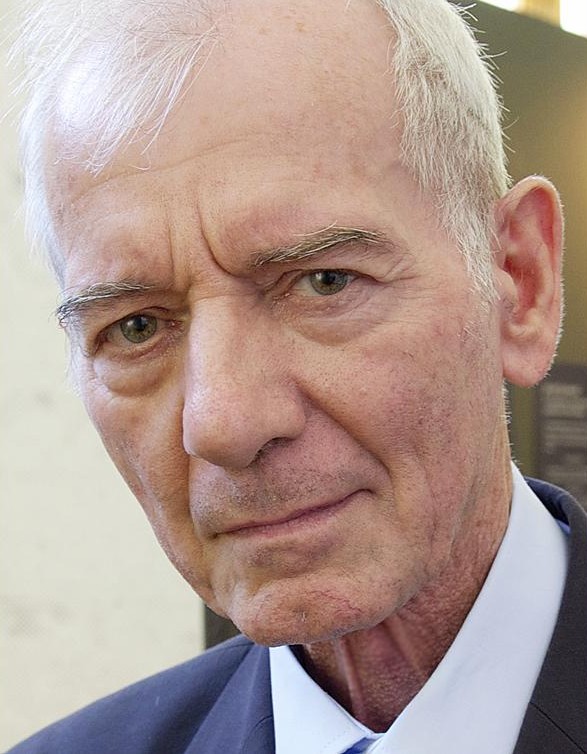
|
|
|
|
|
|
|
|
|
|
|
|
|
|
Publications:
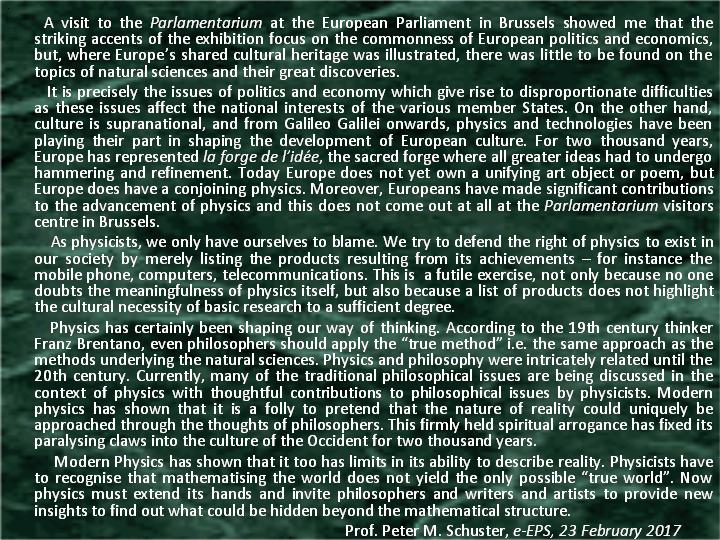
P. M. Schuster, Former and future activities of ECHOPHYSICS, e-EPS, 26 March 2018; Europhysics news (3) p. (2018)
P. M. Schuster, 3rd International Conference of History of Physics, e-EPS, 20 November 2018; Europhysics news (2018)
P. M. Schuster, Editorial – European physicists, e-EPS, 23 February 2017; Europhysics news (2) p. 3 (2017)
P. M. Schuster, L. Wilmes, Unfassbare Strablung – Werdegang zur Modernen Physik, Living Edition (2016) ISBN 978–3-901585–33-3
P. M. Schuster, “The Institute of Radium Research, Boltzmanngasse 3, Vienna, Austria”, Europhysics News 46 (5-6) p. 4-5 (2015)
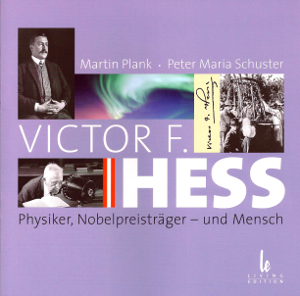
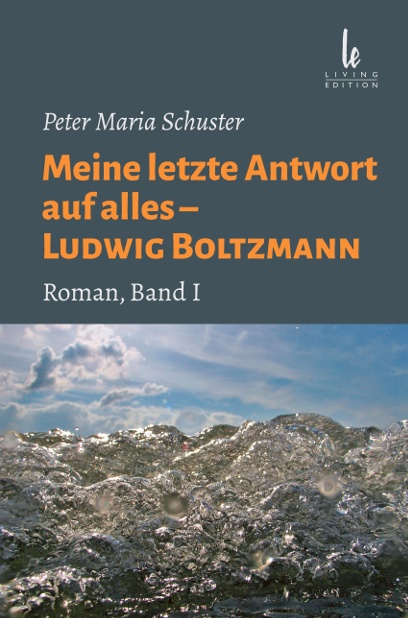
P. M. Schuster, Meine letzte Antwort auf alles – Ludwig Boltzmann, Roman, Band I, (2015) ISBN 978–3-901585–31-9
M. Plank, P. M. Schuster, Victor F. Hess Physiker, Nobelpreistrager – und Mensch, (2012) ISBN 978–3-901585–15-9
P. M. Schuster (Editor), The roots of physics in Europe, Proceedings of the first joint European symposium on the History of Physics held in the European Centre for History of Physics: ECHOPHYSICS, Pullau Castle (Styria) Austria, 28 – 29 May 2010, Living Edition (2013) ISBN 978–3-901585–22-7
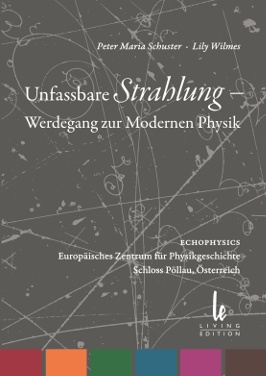

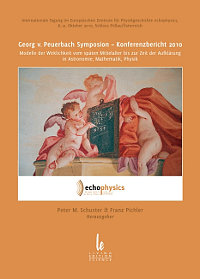
P. M. Schuster, and F. Pichler (Editors), Georg v. Peuerbach Symposion – Konferenzbericht 2010, Modelle der Wirklichkeit vom spaten Mittelalter bis zur Zeit der Aufklarung in Astronomie, Mathematik, Physik, Georg v. Peuerbach Symposion – Conference Proceedings (2010) ISBN 978–3-901585–21-0
P. M. Schuster, What did you do today, Professor? Fifteen Illuminating Responses from Trinity College Dublin, Eoin P. O'Neill, Editor, Living Edition, 2008, 256 pages, ISBN 978–3-901585–11-1
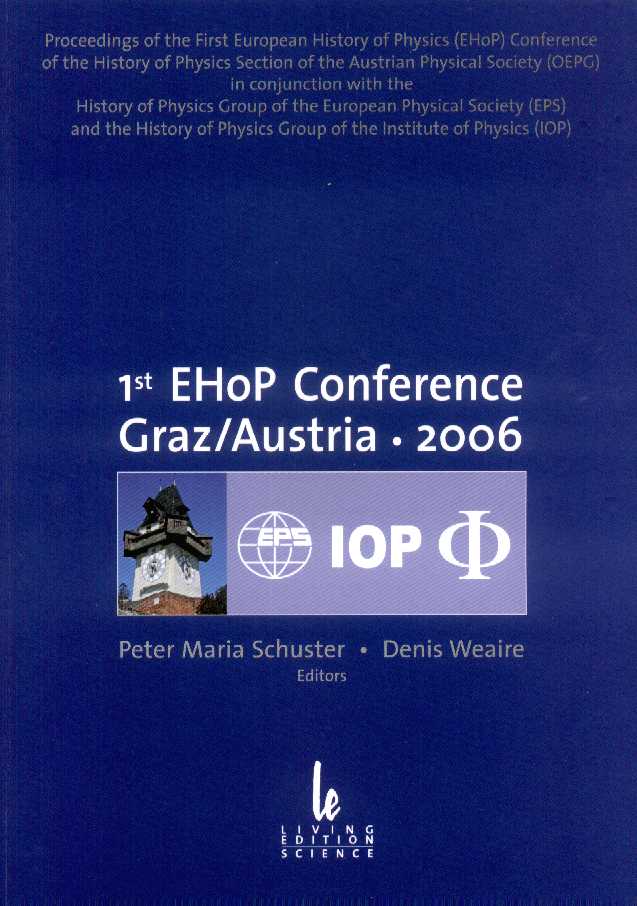
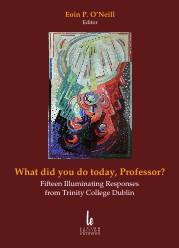
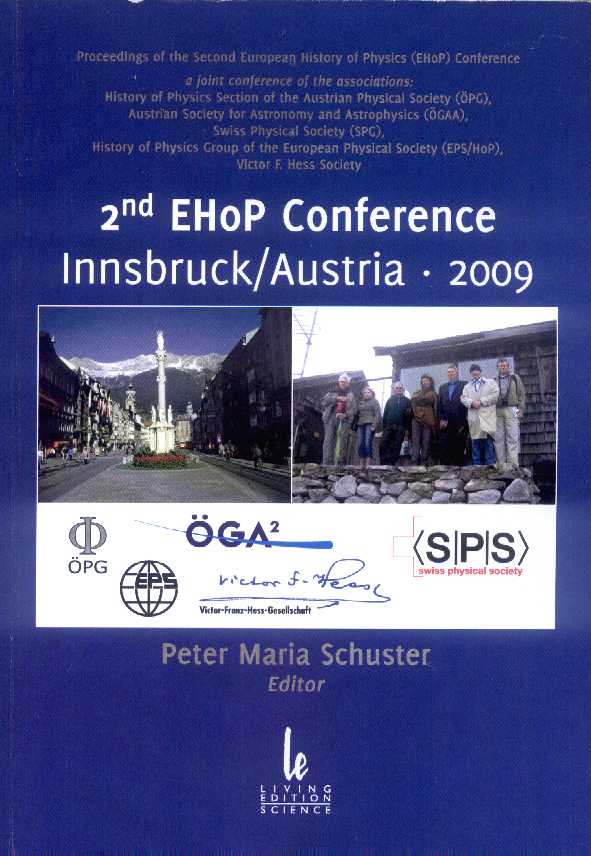
P. M. Schuster, D. Weaire (Editors), Proceedings of the First European History of Physics Conference, Graz, Austria, 2006, Living Edition (2008)
P. M. Schuster, Und was geschieht mit dem Licht? Physiker, Dichter und andere Reisende – Essays (And Then, What Will Happen to Such Lights? About Physicists, Poets and More Travelers – Collected Essays), Living Edition, September 2006, 248 pages, ISBN 978–3-901585–08-1 (ISBN-10: 3-901585-08-7)
P. M. Schuster,
Schopfungswoche – Tag drei Josef Stefan zur Huldigung (The Creation Week—Day Three
In Homage to Josef Stefan), Living Edition, 2006, 144 pages, ISBN 978–3-901585–06-7 (ISBN-10: 3-901585-06-0)
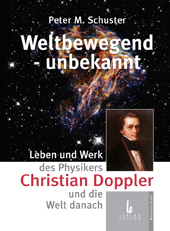
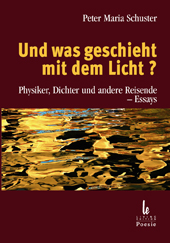
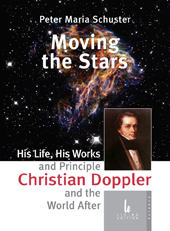
P. M. Schuster (Translation by L. Wilmes), Moving the Stars Christian Doppler, His Life, His Works and Principle, and the World After, Living Edition, Wien (2005) ISBN 978–3-901585–05-0
P. M. Schuster, Schopfungswoche – Tag zwei Joseph Loschmidt zur Huldigung (The Creation Week—Day Two In Homage to Joseph Loschmidt), Living Edition, 2004, 128 pages, ISBN 978–3-901585–04-3 (ISBN-10: 3-901585-04-4);
P. M. Schuster, Weltbewegend – unbekannt Leben und Werk des Physikers Christian Doppler und die Welt danach, Living Edition, Vienna (2003) ISBN 978–3-901585–03-6
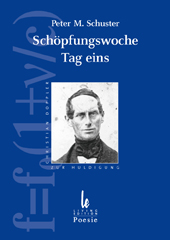
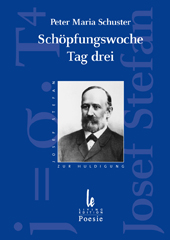
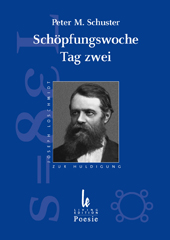
P. M. Schuster, Schopfungswoche – Tag eins, Christian Doppler zur Huldigung (The Creation Week—Day One In Homage to Christian Doppler), 2003, ISBN 978–3-901585–02-9 (ISBN-10: 3-901585-02-8); Translation into Czech by Jiri Franc, Living Edition, 2006, 64 pages, ISBN 978–3-901585–07-4 (ISBN-10: 3-901585-07-9)
G. Vlahakis, E. Nicolaidis, Z. Bosemberg, E. Vampoulis, H. Kragh, P. M. Schuster, E. Koleza, S. Sakkopoulos, E. Vitoratos, C. Skordoulis, H. Polydorou, Notions of physics in natural philosophy (2008)
P. M. Schuster, Johann Josef Loschmidt Eine Passion fur das Unwahrscheinliche
P. M. Schuster, Verschwiegen verkouft und vergessen, Der osterreichische Einstein, Die Presse, 14-15 April 1990
Manuscripts
First(1): We should draw our attention to the paradoxical behavior of physicists and historians of physics in research and teaching physics. The paradox must be resolved to find a breakthrough approach to the issue about how the today-physicist should go on in his “doing physics”.
As you probably experienced yourself when you came across a book by a physicist of an earlier age, when you felt the thrill of historical discovery, how much you desired to learn more about the life and times of its author. Our link with the past is a powerful one and is affirmed by the declaration of Louis de Broglie that an education in physics may be considered wellrounded and complete only when it includes the history of physics and of physics achievement. De Broglie's statement could be testified by many more.
But what is the reality? Max Jammer said: “Most teachers of physics fully acknowledge the desirability of including the HoP in their teaching but, when actively engaged in their teaching, show a strong antihistorical bias so that their performance belie their declared convictions.” Teaching physics today has come under increasingly professional pressure. More young people must be attracted to physics as a career. In part to meet this challenges, HoP will come into play only as it always has in the past, namely anecdotally.
It could hardly be otherwise. The physicist is problem-oriented, struggling to find a solution in a way that is characterized by logicality and simplicity. The historian's task is very different. The watch words of the historian are illogicality and complexity. The physicist and the historian thus have very different objectives in their research and employ different methods. Research in the two disciplines seems complementary, like wave and particle.
Teachers typically treat the history of physics in the linear fashion. Such conveys at least two messages: First, it suggests that physics progresses in an almost programmed fashion: start the machine and in the near future it will have produced a new discovery. Second, such linear history suggests that physicists are people of superhuman intellectual capacities; physics is not a discipline for ordinary mortals such as young students. Third, physicists can make any discovery – just feed them some money, point them at a target, and they will score a bull's eye. But the reality is different: The relationship between theory and experiment in physics is far from simple and depends upon the particular historical circumstances at a given time.
History of physics and physics are acting in a complementary way, both approaches are necessary to open to our students the understanding of the nature of physics. But how to bring the two together constructively? Trained physicist with a knowledge of historical methods would be perfect in research and teaching of the history of physics. Echophysics at Poellau Castle could be built up since we took recourse to physicists, who do have the understanding of historical physical instrumentation. Historians don't have this knowledge.
Here is my message to you: the complementary methods of physics and history are not balanced at our universities. Physicists interested in the history of their own discipline have no perspectives for their professional progress in the faculty of physics, they have to change to the faculty of historical and cultural science, have to research there under the auspices of the professors of history of science and are then only supplier of focussed specialized knowledge in subordinate positions. Such is also the status quo for our HoP Group members at European Physical Society. The European Union – funding for HoP is going to the faculties of History of Science, alas, not to the faculties of Physics.
Please consider that worldwide numerous conferences on the history of science and philosophy take place, counting each up to 2.000 participants of whom physicist-historians comprise 2 % only; an international conference series on the physics-history has simply been non-existing so far.
In 2010, the European Physical Society / History of Physics Group together with the then inaugurated European Centre for HoP, short-named Echophysics, in Poellau/Austria had organized a première meeting gathering international physicists who are working in the filed of HoP. We had named this conference “the roots of physics in Europe”, the related proceedings of 25 selected contributions were published in 2013. A next international HoP conference followed in 2012, again at Echophysics in Poellau with its main topic on cosmic radiation. In 2014, at Trinity Cambridge and with the joint efforts by Institute of Physics and Echophysics, took place the so-called “First International Conference in History of Physics”, physicist-historians together with historians taking actively part. In the present September, 2016 the Cambridge series will be pursue: the “Second International Conference in History of Physics” is a joint meeting by European Physical Society and Echophysics, set up together with the History of Physics sections at the European Physical Societies from UK, Germany and Austria, plus the American Institute of Physics. The participants are physicists and historians again, still, also this conference is under the lead of physicists only.
A second point: My visit to the European Union Parlamentarium in Brussels showed me that the striking accents of the exhibitions focus on the commonness of European politics and economics, but, where Europe's shared cultural heritage was illustrated, there was little to be found on the topics of natural sciences and their great discoveries. It is precisely the issues of politics and economy which give rise to disproportionate difficulties as these issues affect the national interests of the various member States. Whereas culture is supranational, and, from the 19th century onwards, physics and technologies have been playing their part in shaping the development of European culture. For two thousand years Europe has represented „la forge de l'idée“, the sacred forge where all greater ideas had to undergo hammering and refinement. Today Europe does not yet own a conjoining book or poem, but Europe has got a conjoining physics, moreover, physics is an achievement invented by Europeans – this does not come out at all at the Parlamentarium visitors centre.
We have to blame us physicists that we try to define the right of physics to exist in our society by merely listing down the products from its achievements (like for instance the mobile phone, the IT in general etc.). This is an almost forlorn enumerating since, anyway, nobody would doubt about the meaningfulness of physics itself, but also because a list of products does not highlight the cultural necessity of basic research in sufficiently deep a way. Physics has certainly been shaping the way of our thinking and since the 19th century even for the philosopher the true method had become the same as the method underlying to the natural science.
In its today exhibitions, the European Union Parlamentarium does not refer to this extraordinary influence of physics on our conception of the world.
What could become the contribution of the European Physical Society / History of Physics Group at European Union Brussels:
Point to HoP and especially to the fact that the roots of physics are of European origin through permanent or extraordinary expositions that are supported by Echophysics. A better understanding of Europe's “Physicsestoire” (2) will give valuable information when reflecting about our today problems in physics and will help to find solutions for shaping Europe's future, may I only remind you of the pressing issue on ENERGY!
From our particular point of view, European Physical Society / History of Physics could explore what the European Commission does in terms of recognition (and some support?) of historic sites and other aspects of scientific "heritage". All the awarded EPS Historic Sites should permanently be held in evidence and emphasized by the European Union institutions in Brussels.
The European Physical Society / History of Physics Group should regularly organize lectures for the European Union officials in Brussels to give highlight about the importance of physics for the development of the modern thinking.
Additional lectures should give information what kind of contributions to the development of physics the various European Union Member States did achieve. Thereby information is provided about the national characteristics and about the national problems in teaching and research for the various EU Member States.
One of our members, Denis Weaire (Dublin) has a very long record, over several decades, of involvement with Brussels, including membership of the Scientific Council of the Joint Research Centre – who is the European Commission's in-house science service. He was Chair of Physics for the Marie Curie Programme, and for five years gave recent service as an European Research Council Panel member. Some other old examples: Karl Grandin (Stockholm) was involved with: “Cultural heritage in regional networks – REGNET” (2001–2003) funded by the European Commission. Jim Bennet, Oxford, was the applicant and the leader of the project producing the 'Epact' database of early scientific instruments, completed in 1998.
What the European Physical Society / History of Physics Group wishes to obtain from the European Physical Society:
We would propose that our Group could be present and active in other Divisions' and Groups' activities, for example with a presentation in their Conferences on a subject, which could introduce the participants in the historical perspective of their field. On the other hand we may also invite speakers from these D/G to our Conferences.
We should like to stimulate that our European Physical Society / History of Physics Group will ACTIVELY contribute to the selecting of future EPS Historic Sites. We should like to get more responsibility involved from our History of Physics Group. I therefore strongly affirm that all members from the EPS/HoP Group get sight of the texts and that for each new historic site we HoP experts evaluate the correctness of the facts accounted for, as well as the importance/significance of its being awarded. We are all enthused about accepting such additional History of Physics task for our Group.
Refereences
I am partly referring to the work by Roger H. Stuewer from the Dept. of Physics at Minnesota University
Accounting for the etymological provenance of history from the Old French “estoire” (that reflects its Greek origin) on the one hand, and accounting for the fact that the very roots of physics are located in Europe on the other hand, a new department like “Physicsestoire” [a denominating composed by Dr. Lily Wilmes, Echophysics secretary (my wife)] would need to get assigned its own place at every European faculty of Physics.
Peter M. Schuster
European Physical Society Divisions / Groups and the European Physical Society Executive Committee meeting, 26 May 2016.
References
Museumsgrunder Prof. Dr. Peter Maria Schuster verstorben, 26.12.2019
Peter Maria Schuster, Salzburg Wiki
Peter Maria Schuster, Academy of Europe
Wolfgang Koch, Peter M. Schuster lasst sich im Literaturhaus lesen, taz.blogs (19.06.2016)
S. Jammernegg Bundesauszeichnungen und Berufstitel in der Grazer Burg verliehen, Kommunikation Land Steiermark (31.05.2016)
L. Cifarelli, The European Historic Sites heritage, Prima Pagina, Nr. 15 (23.03.2015)
H. Kahlert, H. Krenn, L. Wilmes, Echophysics, The first European Centre for the History of Physics in Poellau (Austria), Europhysics News 42(4) 24-28 (2011)
Ehrung von Dr. Peter M. Schuster und Dr. Lily Wilmes durch die Marktgemeinde Pollau – "Dank und Anerkennung der Marktgemeinde Pollau"
http://www.petermschuster.at
http://www.echophysics.org
ECHOPHYSICS – European Centre for the History of Physics
Schloss 1
8225 Pollau b. Hartberg, AUSTRIA
Created: 12 February 2017
Updated: 28 November 2023
